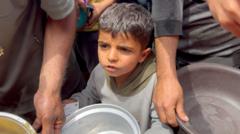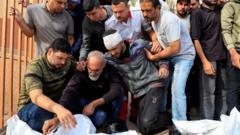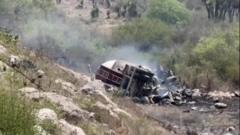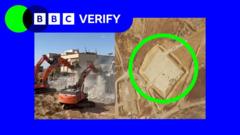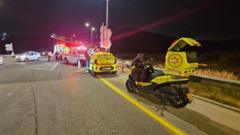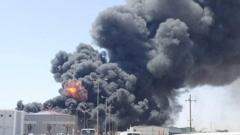**In a significant escalation of violence, recent Israeli military actions in northern Gaza have resulted in nearly 100 fatalities, prompting urgent humanitarian concerns and calls for ceasefire negotiations.**
**Escalation of Violence in Gaza: Nearly 100 Casualties from Recent Israeli Strikes**
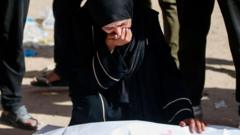
**Escalation of Violence in Gaza: Nearly 100 Casualties from Recent Israeli Strikes**
**In northern Gaza, civilian casualties mount as Israeli military operations intensify amid ongoing conflict**
Nearly 100 individuals, including children, have reportedly lost their lives in large-scale Israeli military operations that were executed early Friday in northern Gaza, as reported by the Hamas-run civil defense and local residents. The attacks, which involved ground, air, and naval forces, saw at least nine civilian homes and temporary shelters struck, leading to numerous individuals being trapped underneath rubble. Witnesses described a chaotic scene, with one evacuee stating that intense bombardment began while people were asleep, reflecting the severity of the onslaught.
Basheer al-Ghandour, a survivor who fled Beit Lahia for Jabalia, recounted the horrific experience during the assault, describing how bombing commenced from multiple directions and resulted in significant casualties within his family. The trauma of the attack has left many families, including his, devastated as they attempt to rescue loved ones still buried in the debris, leading to harrowing scenes of loss and desperation.
Amid these civilian tragedies, Israel’s military has stated that the actions were targeted towards dismantling terrorist infrastructure within Gaza, claiming that several terrorists were eliminated during the operations. This military strategy follows Israel's intent to maintain pressure on Hamas, as government officials have indicated a pledge to intensify military operations if the group does not agree to terms for a ceasefire and the return of hostages.
The resulting chaos has led to heightened fear and panic among the displaced populations in Gaza, as evacuation orders issued by the Israeli Defense Forces (IDF) left many families unsure of where to find refuge. Reports indicate that those fleeing face critical shortages of basic necessities such as food, water, and shelter, exacerbating the humanitarian crisis in the region.
In the broader context, the recent attacks follow a harrowing surge in violence since October 7, with over 53,000 Palestinians reported killed in Gaza amidst a humanitarian blockade that has severely limited access to essential supplies. Despite international outcry, Israel has maintained that the blockade is a tactical measure against Hamas, further complicating the humanitarian situation.
U.S. officials have expressed concern regarding the ongoing crisis in Gaza, highlighting the necessity for humanitarian assistance while acknowledging the complex challenges posed by ongoing hostilities. As the international community watches closely, tensions remain high, with ongoing discussions around potential ceasefire negotiations witnessing delays amid the fallout from this escalation.
Basheer al-Ghandour, a survivor who fled Beit Lahia for Jabalia, recounted the horrific experience during the assault, describing how bombing commenced from multiple directions and resulted in significant casualties within his family. The trauma of the attack has left many families, including his, devastated as they attempt to rescue loved ones still buried in the debris, leading to harrowing scenes of loss and desperation.
Amid these civilian tragedies, Israel’s military has stated that the actions were targeted towards dismantling terrorist infrastructure within Gaza, claiming that several terrorists were eliminated during the operations. This military strategy follows Israel's intent to maintain pressure on Hamas, as government officials have indicated a pledge to intensify military operations if the group does not agree to terms for a ceasefire and the return of hostages.
The resulting chaos has led to heightened fear and panic among the displaced populations in Gaza, as evacuation orders issued by the Israeli Defense Forces (IDF) left many families unsure of where to find refuge. Reports indicate that those fleeing face critical shortages of basic necessities such as food, water, and shelter, exacerbating the humanitarian crisis in the region.
In the broader context, the recent attacks follow a harrowing surge in violence since October 7, with over 53,000 Palestinians reported killed in Gaza amidst a humanitarian blockade that has severely limited access to essential supplies. Despite international outcry, Israel has maintained that the blockade is a tactical measure against Hamas, further complicating the humanitarian situation.
U.S. officials have expressed concern regarding the ongoing crisis in Gaza, highlighting the necessity for humanitarian assistance while acknowledging the complex challenges posed by ongoing hostilities. As the international community watches closely, tensions remain high, with ongoing discussions around potential ceasefire negotiations witnessing delays amid the fallout from this escalation.

